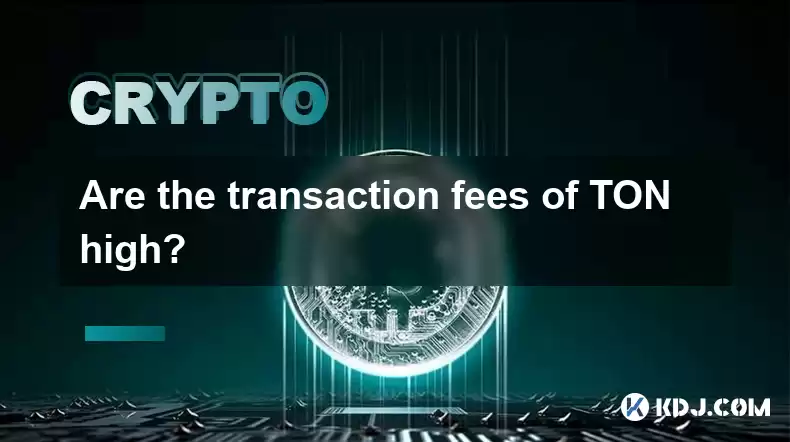-
 Bitcoin
Bitcoin $120300
1.41% -
 Ethereum
Ethereum $4296
2.75% -
 XRP
XRP $3.220
1.46% -
 Tether USDt
Tether USDt $0.9997
-0.04% -
 BNB
BNB $801.6
0.14% -
 Solana
Solana $179.9
0.22% -
 USDC
USDC $0.9998
-0.01% -
 Dogecoin
Dogecoin $0.2302
-0.24% -
 TRON
TRON $0.3405
-0.39% -
 Cardano
Cardano $0.7965
0.53% -
 Hyperliquid
Hyperliquid $44.80
2.57% -
 Chainlink
Chainlink $21.95
2.94% -
 Stellar
Stellar $0.4438
1.68% -
 Sui
Sui $3.767
-1.42% -
 Bitcoin Cash
Bitcoin Cash $584.4
3.24% -
 Hedera
Hedera $0.2554
-0.59% -
 Ethena USDe
Ethena USDe $1.001
-0.02% -
 Avalanche
Avalanche $23.57
0.00% -
 Litecoin
Litecoin $126.6
4.64% -
 Toncoin
Toncoin $3.339
0.94% -
 UNUS SED LEO
UNUS SED LEO $9.001
-0.49% -
 Shiba Inu
Shiba Inu $0.00001320
-0.92% -
 Uniswap
Uniswap $10.84
3.36% -
 Polkadot
Polkadot $3.945
-1.39% -
 Cronos
Cronos $0.1663
4.77% -
 Ethena
Ethena $0.8136
8.48% -
 Dai
Dai $0.0000
0.00% -
 Bitget Token
Bitget Token $4.391
-0.51% -
 Monero
Monero $268.0
0.80% -
 Pepe
Pepe $0.00001169
-1.57%
Are the transaction fees of TON high?
TON's transaction fees are typically low, but vary based on network congestion, transaction size, and user-selected speed. Users can prioritize speed by paying higher fees, while opting for slower processing reduces costs. This dynamic system aims for accessibility and broad adoption.
Mar 12, 2025 at 09:55 pm

Key Points:
- TON's transaction fees are generally low compared to some other Layer-1 blockchains.
- Fee amounts depend on several factors including network congestion, transaction size, and the chosen fee type.
- Users can choose to pay higher fees for faster transaction processing.
- The low fees are designed to promote accessibility and encourage wider adoption.
- Future network growth may influence fee structures.
Are the Transaction Fees of TON High?
The question of whether TON's transaction fees are high is relative and depends on several interconnected factors. A simple "yes" or "no" answer isn't sufficient. Compared to established giants like Ethereum, TON often boasts significantly lower transaction fees. However, comparing it to newer, less-used blockchains might show a different picture. The key lies in understanding the nuances of TON's fee structure and how it adapts to network conditions.
TON utilizes a dynamic fee mechanism. This means the fees aren't fixed; they fluctuate based on the current demand on the network. When the network is congested with many transactions, the fees naturally increase to incentivize miners to prioritize transactions and maintain network efficiency. Conversely, during periods of low network activity, fees decrease. This dynamic approach aims to balance speed and cost-effectiveness for users.
The size of the transaction itself also impacts the fee. Larger transactions, such as those involving many tokens or complex smart contract interactions, will generally incur higher fees than smaller, simpler transactions. This is a common characteristic across most blockchains, not unique to TON. Essentially, the more computational resources a transaction requires, the higher the fee.
Furthermore, users have some control over their transaction fees. They can choose to pay a higher fee to prioritize their transaction and ensure faster processing. This is particularly useful for time-sensitive transactions, such as those involving decentralized finance (DeFi) applications where speed is critical. This "gas fee" system allows users to balance their need for speed against the cost of the transaction.
The type of transaction also matters. A simple token transfer will typically have lower fees compared to a more complex smart contract interaction. Smart contracts require more computational power to execute, therefore increasing the fee. Understanding the different transaction types and their associated computational costs is essential for managing expenses effectively on the TON network.
Factors Influencing TON Transaction Fees:
Several elements contribute to the final transaction fee a user pays on the TON network. Let's break them down:
- Network Congestion: High network activity leads to higher fees. More transactions competing for processing power drive up the price.
- Transaction Size: Larger transactions, involving more data, naturally demand higher fees.
- Gas Price (Fee Type): Users can select different gas prices, influencing transaction speed and cost. Higher gas prices ensure faster processing.
- Computational Complexity: Complex smart contract interactions cost more than simple token transfers.
How to Minimize Transaction Fees on TON:
While fees are generally low, there are strategies to further minimize costs:
- Choose off-peak times: Transacting during periods of low network activity can significantly reduce fees.
- Optimize transaction size: Avoid unnecessary data in your transactions.
- Use a lower gas price: Accepting a longer processing time can save on fees.
- Batch transactions: Combine multiple transactions into a single, larger transaction to reduce overall costs (where applicable).
Common Questions and Answers:
Q: Are TON transaction fees comparable to Bitcoin's?
A: Generally, TON transaction fees are considerably lower than Bitcoin's, which can be quite substantial, especially during periods of high network congestion.
Q: How are TON transaction fees calculated?
A: TON's fee calculation is dynamic, factoring in network congestion, transaction size, and the user-selected gas price. It's not a fixed amount.
Q: Can I predict the exact transaction fee beforehand?
A: While you can't predict the exact fee with absolute certainty due to the dynamic nature, most TON wallets provide fee estimations based on current network conditions.
Q: What happens if I don't pay enough transaction fees?
A: Your transaction will likely fail, and you may lose a small amount depending on the wallet's structure. The unspent funds will usually remain in your wallet.
Q: Are TON transaction fees stable or volatile?
A: TON transaction fees are volatile, fluctuating with network activity. They are generally low, but can increase during periods of high demand.
Q: Are there any hidden fees on TON?
A: There are no hidden fees beyond the displayed transaction fee. Transparency is a key design principle of the TON network.
Q: How do I check my transaction fees before confirming a transaction?
A: Most TON wallets display an estimated transaction fee before you confirm the transaction, allowing you to review the cost before proceeding. This estimation is usually based on current network conditions and may slightly vary from the actual fee.
Q: What are the implications of high TON transaction fees for adoption?
A: While TON generally maintains low fees, exceptionally high fees during peak network activity could hinder widespread adoption, particularly for users with limited resources. However, the dynamic fee mechanism aims to mitigate this risk.
Disclaimer:info@kdj.com
The information provided is not trading advice. kdj.com does not assume any responsibility for any investments made based on the information provided in this article. Cryptocurrencies are highly volatile and it is highly recommended that you invest with caution after thorough research!
If you believe that the content used on this website infringes your copyright, please contact us immediately (info@kdj.com) and we will delete it promptly.
- DYDX Price Stays Afloat: Navigating Neutral Momentum with Technical Indicators
- 2025-08-11 20:50:12
- Superman Takes Flight: A Deep Dive into the Comic Program and Coin Medals
- 2025-08-11 20:30:12
- JasmyCoin's Bullish Momentum: Riding the Daily Gain Wave
- 2025-08-11 21:10:12
- Shiba Inu's Comeback Trail and the Meme Coin Mania: Can $SHIB Deliver a 12,000x Return?
- 2025-08-11 18:30:11
- Proof of Trust, Transparency, and User Safety: Keeping Crypto Real
- 2025-08-11 18:50:12
- Pudgy Penguins, Bitcoin Penguins, and the $22M Meme Coin Mania: A New York Perspective
- 2025-08-11 17:10:11
Related knowledge

How to purchase Aragon (ANT)?
Aug 09,2025 at 11:56pm
Understanding Aragon (ANT) and Its PurposeAragon (ANT) is a decentralized governance token that powers the Aragon Network, a platform built on the Eth...

Where to trade Band Protocol (BAND)?
Aug 10,2025 at 11:36pm
Understanding the Role of Private Keys in Cryptocurrency WalletsIn the world of cryptocurrency, a private key is one of the most critical components o...

What is the most secure way to buy Ocean Protocol (OCEAN)?
Aug 10,2025 at 01:01pm
Understanding Ocean Protocol (OCEAN) and Its EcosystemOcean Protocol (OCEAN) is a decentralized data exchange platform built on blockchain technology,...

Where can I buy UMA (UMA)?
Aug 07,2025 at 06:42pm
Understanding UMA and Its Role in Decentralized FinanceUMA (Universal Market Access) is an Ethereum-based decentralized finance (DeFi) protocol design...

How to buy Storj (STORJ) tokens?
Aug 09,2025 at 07:28am
Understanding Storj (STORJ) and Its Role in Decentralized StorageStorj is a decentralized cloud storage platform that leverages blockchain technology ...

Where to find the best price for Audius (AUDIO)?
Aug 11,2025 at 04:01pm
Understanding the Basics of Ethereum StakingEthereum staking refers to the process of locking up ETH tokens to support the security and operations of ...

How to purchase Aragon (ANT)?
Aug 09,2025 at 11:56pm
Understanding Aragon (ANT) and Its PurposeAragon (ANT) is a decentralized governance token that powers the Aragon Network, a platform built on the Eth...

Where to trade Band Protocol (BAND)?
Aug 10,2025 at 11:36pm
Understanding the Role of Private Keys in Cryptocurrency WalletsIn the world of cryptocurrency, a private key is one of the most critical components o...

What is the most secure way to buy Ocean Protocol (OCEAN)?
Aug 10,2025 at 01:01pm
Understanding Ocean Protocol (OCEAN) and Its EcosystemOcean Protocol (OCEAN) is a decentralized data exchange platform built on blockchain technology,...

Where can I buy UMA (UMA)?
Aug 07,2025 at 06:42pm
Understanding UMA and Its Role in Decentralized FinanceUMA (Universal Market Access) is an Ethereum-based decentralized finance (DeFi) protocol design...

How to buy Storj (STORJ) tokens?
Aug 09,2025 at 07:28am
Understanding Storj (STORJ) and Its Role in Decentralized StorageStorj is a decentralized cloud storage platform that leverages blockchain technology ...

Where to find the best price for Audius (AUDIO)?
Aug 11,2025 at 04:01pm
Understanding the Basics of Ethereum StakingEthereum staking refers to the process of locking up ETH tokens to support the security and operations of ...
See all articles

























































































